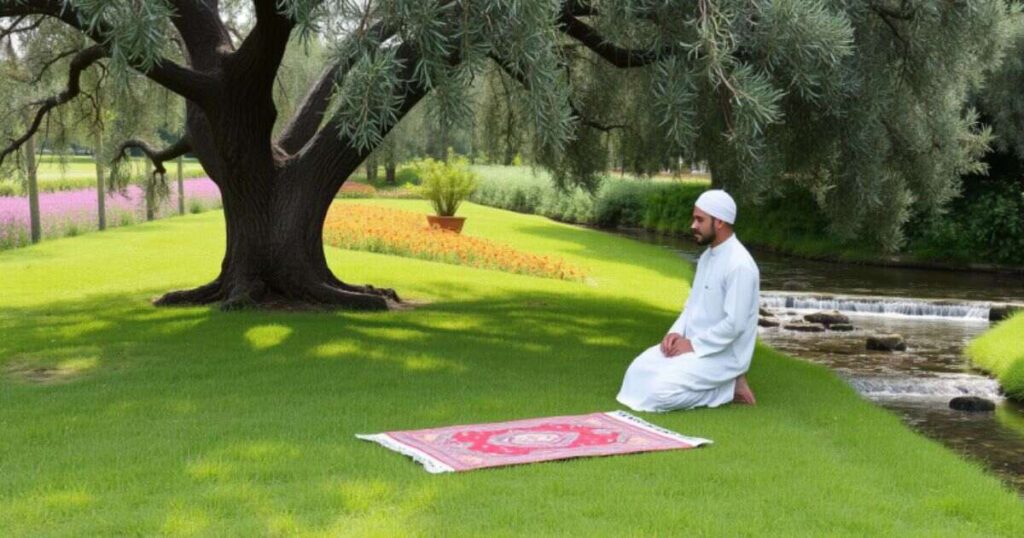In our fast paced world, we often feel we have little time to connect with Allah . Short Prayers come to the rescue, because they distill profound Islamic truths into phrases we can whisper at any moment. Moreover, they align our hearts with tawḥīd pure monotheism, draw barakah divine blessing into our work, and, importantly, keep us mindful even while life rushes on. Consequently, these concise invocations sharpen attention, strengthen sabr patience, and fill the soul with shukr gratitude. Although they are brief, their spiritual voltage is high; they change attitudes, refine intentions, and, above all, please the Most Merciful.
The Essence of Short Prayers
Every revelation whether a Qurʾānic verse or a ḥadīth carries layers of meaning. Similarly, Short Prayers pack immense power because their wording is chosen by the Prophet or endorsed by generations of scholars. First, they are easy to memorize, which means our tongues can repeat them often. Second, they integrate seamlessly into routine tasks, so faith becomes living experience rather than theory. Third, their brevity trains the heart to focus; therefore, distraction fades, and devotion glows. Furthermore, the economy of words mirrors Islam’s emphasis on ihsān doing things beautifully without waste. Finally, neuroscience now confirms that recurrent positive phrases reshape neural pathways; thus, every dhikr remembrance literally rewires the brain for tranquility. Because of these benefits, Muslims across centuries have clung to succinct, luminous invocations to spark taqwā God-consciousness in daily life.
10 Powerful Short Prayers for Daily Life
Below are ten concise yet mighty duas drawn from the Quran and Sunnah. Read them slowly, absorb their depth, and integrate them wherever the day finds you.
1. Rabbi zidni ilma My God Please increase my knowledge.
Speak this when opening a book, attending class, or starting any intellectual task. This Short Prayers gem appears in Surat ṬaaHa 20.114. It invites divine light into our studies and guards us from arrogance because true knowledge is a gift, not a trophy.
2. “Allāhumma inni ʿala dhikrika wa shukrika wa ḥusni ʿibadatik. O Allah, help me remember You, thank You, and worship You beautifully.”
Taught by the Prophet to Muʿadh ibn Jabal, it blends remembrance with gratitude and excellence. Consequently, it upgrades every act from cooking to coding into worship.
3. Ḥasbuna Allahu wa niʿma al wakil. Allah is sufficient for us and the best disposer of affairs.
Utter it when anxiety spikes. Because this declaration transfers burdens to the Almighty, it dissolves worry, instills resilience, and, moreover, recalls the reliance tawakkul shown by Prophet Ibrāhīm عليه السلام.
4. “Astaghfirullāh. I seek Allah’s forgiveness.
Simple yet seismic, it scrubs the heart of sin-stains. Frequent istighfār draws rizq sustenance and rain, as Surat Nuḥ 71.10 12 promises. Since sins choke barakah, cleaning them away boosts productivity and peace.
5. Subḥanallah wa bi ḥamdih. Glory be to Allah and praise be to Him.
Recite it morning and evening; the Prophet said whoever says it a hundred times has sins wiped away even if they are as abundant as sea foam. As a result, the mind bathes in purity while the tongue earns immense reward.
6. Ya Ḥayy, ya Qayyum, bi raḥmatika astaghith. O Ever Living, O Sustainer, by Your mercy I seek relief.”
When deadlines loom or illness visits, this plea summons divine energy. Because the two Names al-Ḥayy and al Qayyūm signify perpetual life and support, invoking them infuses struggling hearts with fresh strength.
7. Rabbi yassir wa la tuʿassir.My God make it easy and do not make it hard.
Before surgery, job interviews, or even traffic jams, breathe this Short Prayers formula. Immediately, calm descends, focus sharpens, and outcomes align with hikmah wisdom.
8. Innallaha maʿa aṣ ṣabirin.Indeed, Allah is with the patient.
Quote this Quranic truth 2.153 aloud whenever frustration surfaces. Because divine companionship comforts the soul, perseverance grows easier, and anger shrinks.
9. Rabbana ʿataina fid dunya ḥasanah wa fil akhirati ḥasanah wa qina ʿadhab an nar. Allah, grant us good in this world and good in the Hereafter and protect us from the Fire.
Balanced and comprehensive, it steers life toward holistic success. Speak it after salah or during a morning walk; its breadth makes it a daily anchor.
10. La ḥawla wa la quwwata illa billah. There is no power or might except through Allah.
This declaration of reality called Kanz min kunuz al Jannah a treasure from Paradise frees us from ego. Consequently, we act with humility yet move mountains, for our strength then flows from an infinite Source.

How to Integrate Short Prayers into Your Routine
First, attach each dua to a micro-moment. For instance, whisper “Astaghfirullāh” between email replies, or say “Rabbi yassir” before tapping “send.” Second, leverage technology: set subtle adhan-like reminders on your phone; thus, modern tools serve timeless worship. Third, involve family: encourage children to repeat “Subḥānallāh wa bi-ḥamdih” while tidying toys, thereby weaving remembrance into household culture. Fourth, pair dhikr with breaths inhaling mercy, exhaling stress so your nervous system calms and mindfulness deepens. Fifth, record personal reflections in a journal; because writing reinforces memory, the duas stick. Ultimately, when repetition meets intention, Short Prayers shift from being occasional words to becoming the heartbeat of your day.
Frequently Asked Questions
Q1: Why do short prayers hold such great reward?
A: The Prophet taught concise supplications so everyone, regardless of literacy or schedule, could connect with Allah swiftly. Their inspired wording carries layers of meaning that unlock immense reward, even when uttered in seconds.
Q2: How often should I repeat each prayer?
A: There is flexibility. Nevertheless, scholars recommend regular, sincere repetition morning, evening, after obligatory salah, and whenever relevant situations arise to maximize spiritual benefit.
Q3: Can I make up my own short prayers in English?
A: Yes. Dua can be in any language, provided the content is respectful and the heart is present. Yet, prophetic supplications enjoy special status because they are revelation endorsed.
Q4: Do I need wuduʾ to say these duas?
A: While ritual purity is commendable, dhikr and dua remain permissible without wuduʾ. Remember Allah wherever you are; formal ablution is not a prerequisite for every invocation.
Q5: Will repeating short prayers improve mental health?
A: Studies indicate that mindful repetition lowers cortisol and enhances emotional regulation. Islamically, constant remembrance brings sakīnah tranquility promised in Quran 13.28.
Q6: How can children memorize these prayers easily?
A: Use melody, repetition, and context such as saying Rabbi zidni ʿilmā” before homework to embed meaning and memory simultaneously.
Q7: Are there recommended times for La ḥawla wa la quwwata illa billah”?
A: Yes, during adhan response, after iqamah, when leaving home, and whenever facing difficulty. Its flexibility, however, means you can recite it anytime.
Q8: What if my pronunciation is weak?
A: Allah listens to intention. Nevertheless, strive to learn correct pronunciation through teachers or authentic recordings, thereby honoring the sacred Arabic text.
Q9: Can women recite these prayers during menstruation?
A: Absolutely. Dhikr and duā are open regardless of menstrual state. Spiritual connection never pauses.
Q10: Why do scholars call some phrases treasures from Paradise?
A: The Prophet described certain invocations such as Subḥanallāh wa bi ḥamdih and La ḥawla wa la quwwata illa billah as immense in scale on the Day of Judgement, likening them to precious heavenly gems.

You may also like:PrayerTechy
Conclusion
Because life seldom slows down, Short Prayers give the believer a pocket-sized spiritual toolkit. When you sprinkle them through daily tasks, you consciously tether your heart to the Divine, increase gratitude, fortify patience, and unlock serenity. Indeed, with each whispered phrase, you plant seeds of iman that blossom into unwavering trust and profound inner peace. Therefore, embrace these small but mighty supplications, and by Allah’s grace watch your hours transform into worship and your soul glow with light.
You may also like:PrayerTechy

Hi I’m Hamza Basharat SEO content writer with 4 years of experience and founder of PrayerTechy.com. I combine faith and strategy to help people discover how to pray with purpose, using well optimized, impactful content rooted in scripture and spiritual growth.



1 thought on “Short Prayers That Carry Deep Spiritual Power”